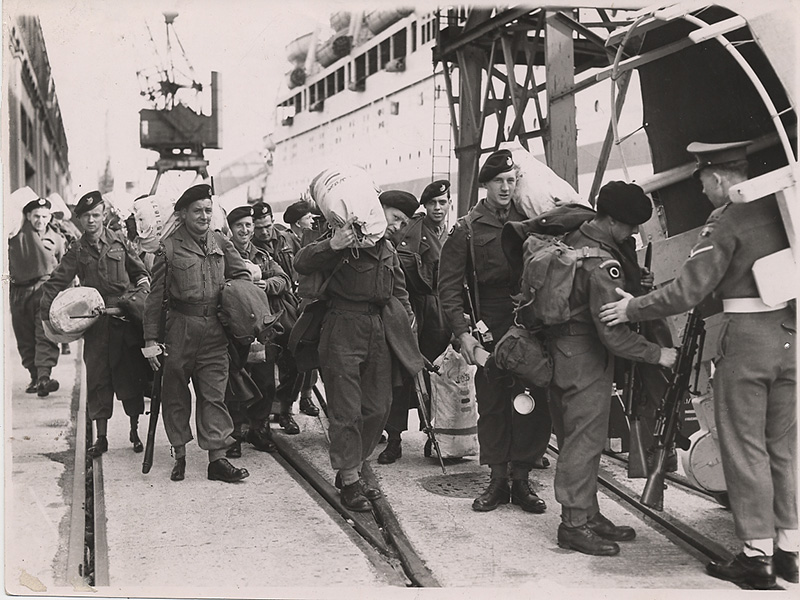70 Years since ‘The Glorious Glosters’ set sail for Korea on The Empire Windrush

Thursday 1st October 2020 marks seventy years to the day that the 1st Battalion of The Gloucestershire Regiment embarked from Southampton on board the troopship Empire Windrush, destined for the largely unknown Country of Korea.
890 Officers and men boarded the ship to the sounds of the Regimental band playing alongside. Hundreds of proud family members, friends and journalists stood waving off their loved ones. Little did anyone know that just 203 days later the battalion would come up against over 10,000 soldiers of the Chinese Republican Army at the Battle of the Imjin River. Outnumbered by 10 to 1, they fought it out steadfastly for three days ‘to the last round’.
The ‘Glosters’ formed part of the 29th Infantry Brigade, which also included The Royal Northumberland Fusiliers and The Royal Ulster Rifles, and was supported by 4/5 Field Regiment and 170 Heavy Mortar Battery Royal Artillery and The Royal Engineers. Some had served during WWII, and so it was probably the most experienced expeditionary force that Britain had ever sent abroad. In addition, the battalion also included many National Servicemen, young men who had agreed to serve abroad on active service.
Their Commanding Officer, Lt. Col. James Power Carne, had already commanded a battalion of Kings African Rifles in the Burma Campaign in WWII. His right-hand man as Adjutant was Captain Anthony Farrar-Hockley who had fought in Italy and France and was later to command The Parachute Regiment and was finally to end his military career as Commander-in-Chief of NATO Forces in Northern Europe. All the company commanders were WWII veterans, along with many of others. The older soldiers took the young, keen but probably very apprehensive National Servicemen under their wing and taught them how to survive on the battlefield.
The journey to Korea took 41 days, and the battalion eventually arrived on the shores of South Korea on 10th November 1950, to begin playing their part in protecting the embryonic South Korea from invasion by Communist North Korea and China.
Brian Hamblett who served with the Glosters and was one of those on board, said:
“I was a naïve 18 year old when we left Southampton, and it was all an exciting new experience. I remember carrying my kit bags and walking up the gang plank, looking around in awe at this enormous ship. We were told the fighting in Korea would all be over by Christmas, so we thought it was all a bit of jolly.”
Brian was to fight at the Battle of the Imjin River and on 25th April 1951 was captured by the Chinese, only to spend the next two and a half years in a Chinese Prisoner of War Camp in North Korea.
Explore Gloucestershire
28 September 2020
For further information.
OTHER NEWS
